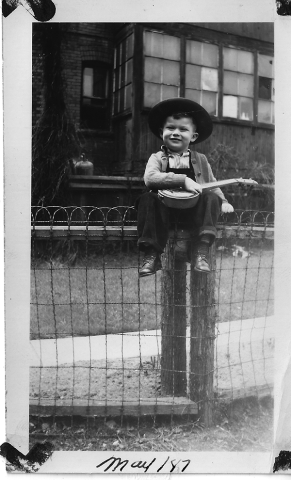
Karen Bliss: Your book is really about music and the creative process and The Band, but a few things stood out for me for Samaritanmag. Are you aware the past year that Gord Downie from The Tragically Hip started a fund for education and reconciliation between white Canadians and Indigenous Peoples? It has brought a lot of needed media attention.
Robbie Robertson: Yes, I have.
In your book, you write that your mother was one of the luckier ones. She wasn’t in the residential school system?
She went to school at the Six Nations Indian Reserve and it was, especially in her generation, very tough. Part of the job of the school was to take the Indian out of the Indians, to acclimate them that now you're living in a white man's world and you better learn how that works. So some of this was in her growing up, although she had a teacher at Six Nations — Miss General was her name — and she spoke quite highly of her. But, nevertheless, everybody was aware of what was happening here. This was no secret. You know, in the United States there was a famous school called the Carlisle School where young Indian kinds were sent to really be taught to forget about any of their traditions, any of the languages, anything of their heritage.
You mentioned that in the book, very briefly with one line about that school.
Yes I did. I talked about this kid that they had found in the Carlisle School in the bathroom, they found him with an iron brush trying to scrub the Indian off his skin. These are really heartbreaking stories.
So my mother though, when she was around 15, 16 years old, her mother died and she was sent to live with that aunt of hers in Toronto. And her brother was sent to live with a different family at Six Nations. So her going to Toronto and living with her aunt allowed her to get out of that world, although the new world she didn’t feel all that welcomed in it because she’d only lived at Six Nations all of her life. So when she got to Toronto — it’s another thing that I mentioned in my book too — that the message was, “Be proud that you’re an Indian, but be careful who you tell.”
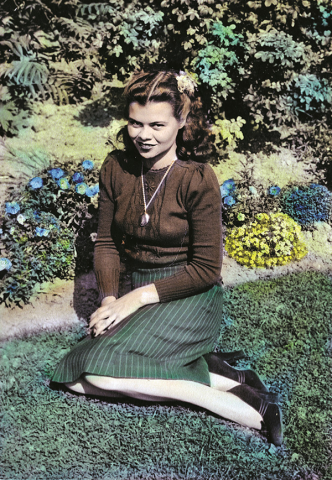
So for her to be able to go out into the world in a way and because she was quite pretty — she was quite attractive — and she could pass for just being a nice toned skin, white person as well. So she felt like she had escaped from something, from some kind of prison of her heritage and it wasn’t until, I would say, she was in her early-20s that she really got to a place of enjoying going back to Six Nations to visit with her relatives. And when I was very young, I can still remember her having a great joyous feeling of that connection in her life of being able to go back. But the lucky part was she was able to enter and leave two different worlds.
That phrase, “Be proud you’re an Indian, but be careful who you tell.” Did that impact you?
Yeah, it did impact me. I never talked about my heritage very much. I tried talking about it when I was quite young going to school in Toronto when I was going to school in the Scarborough Bluffs. When I was growing up and people used to say, “Yeah, my parents are Italian or mine are Irish or mine came from England.” You would hear all these various backgrounds and they would say, “What about you?” And I tried saying, “Well, I’m part Indian and part Jewish.” “What?” [chuckles] Everybody just stopped and looked at me and it was almost like they were going to say, “You’re going to have wait in the car. Because [chuckles] they’re not going to allow you in wherever we’re going.”
Did you experience racism or anti-Semitism at all? You wrote about when you down South and the cops drove you guys out of town when you were eating with black musicians — racism you witnessed — but you don't talk about whether you experienced it.
I experienced it in more of an undertoned way. And when I went from Canada down to the Mississippi Delta and I joined a group, Ronnie Hawkins and the Hawks, they were all from the south. And they could not hardly comprehend somebody in this group of a heritage that was Jewish or North American Indian. That was surreal. So they just kind of let it go, but then there was, as I write it in the book, Ronnie Hawkins at one point says, “God, it was bad enough that we thought Robbie was a redskin; now we find out he’s a damn Jew on [chuckles] top of that.”
It didn’t prevent much, but there was an underlying tone. It just lived there. It didn’t get me in any trouble. But when I was a young kid in Toronto and going to school, after that I didn’t talk about it anymore. I didn’t talk about it for years. I just became Canadian and that's as much detail as I can give you.
It is interesting at such a young age, you, I guess, escaped the reserve or a different kind of life potentially. You were still interested in education — in vocabulary and reading. Where do you think that came from?
I'm not sure. I can guess. But, I really don't know and in the book I talk about the storytelling and I talk about the curiosity and I talk about this hunger for knowledge and I talk about the memory thing. And so all of these pieces, I think, well a good portion of its bound to be genetic. So it comes from somewhere, but it was still at the same time a bit of mystery to me. I just knew what I was drawn to.
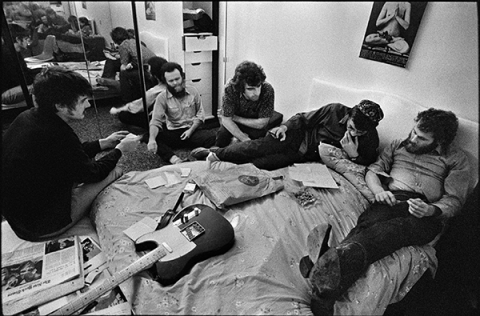
No, but I believed him. There is something about Allen and his prophesies and the way that he spoke that you were like, “Wow,” because you could also at that time think, “This will never happened. That’s like saying, “Oh, one day they're going to legalize heroin.” It was that remote back then. Before that — because then you think, “This is a big crazy world — there were musicians, horn players that played with Ronnie Hawkins, and they played with us for a while, and their dream was to earn enough money so that they could go to London and become full-time junkies and play ajzz. It was almost a tradition, following in the footsteps of Charlie Parker and many other jazz musicians that were heroin addicts. There was a bit of a mythical dream that doing heroin made you play better and nobody has ever proved that to be wrong [laughs] but nobody has proved it to be right either.
So anyway the idea of all of these possibilities being out there, and when Allen Ginsberg talked about that, I didn’t think, “This is a joke; that’s never going to happen.” “Look at that, look at the way they do it this thing over there. We don’t want people stealing and robbing people and everything. If they looked at it like a medical problem, like a disease, and you could go to the pharmacy and get your heroin because you had a prescription, there was so many ways to look at things in all of that, but I did not think in 50 years I bet people are going to be legalizing that; I didn’t see that far into the future.
When you're writing the book were there any things that popped out to you that you're like “Wow, this happened then and it’s still going on now?”
Well there were a lot of things that crossed my mind I didn't write about all of them. I didn't want to0 get political-heavy. I didn't want to get preachy in certain things, but there was a lot of things that crossed my mind that I did think. And, you know, when we’re talking about this whole feel that’s been going on recently in Standing Rock, with indigenous people and still standing up, that crossed my mind a lot. I thought, “Look at that. All these years later and we're still fighting the same problem here. What is it going to take before people will have to respect, will have a way of honoring the original people in the way that they deserve to be honored and not say, “You know what? Throw them a bone here. Give them a casino and maybe that'll shut them up for a while.”
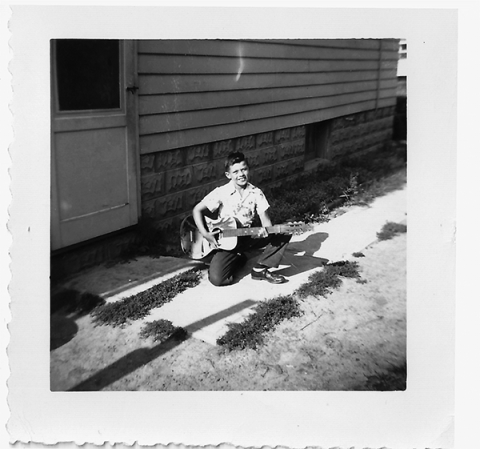
It’s embarrassing for me to say that, being a Canadian citizen, that I wasn't aware of residential schools growing up. It wasn't taught to me when I was in school. And even other things I just wasn’t aware of, like lack of access to affordable fresh produce.
The secret — you weren’t supposed to know. It’s a big job keeping all of these things underground. Now, now you see people receiving this horrible [news] and saying, “I am ashamed. I am embarrassed about that.” Well, the fact that that’s even happening is some kind of progress and the fact that it is being revealed in this kind of way now and, for someone like you to say, “I never even heard about this. This is horrifying. Oh, my God how could I have known about that?” Yeah, well that’s top to ground.
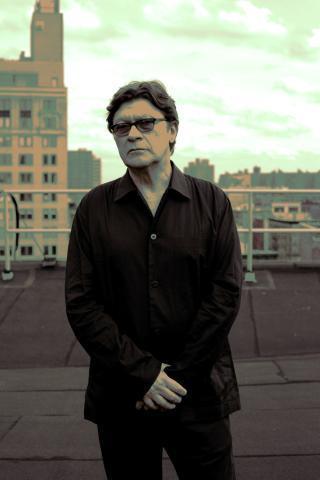
The homeless thing is right up there with all these other injustices that break our heart. You see people that are damaged. Most homeless people are mentally challenged. And it’s happened one way of the other. It’s appened either by being sent out to war or and the fact that they’re discarded people. It’s horrible and it’s inhumane. I really hope that as this world grows and becomes hopefully a better place, that this will so be taken into regard. We can’t have people that are mentally challenged wandering aimlessly around begging. I mean, it’s just wrong.
Your book just goes up 1976. Are you working on another to cover the rest of your life, in one book or in volumes?
Not sure, I’m not sure yet. This period of time is of, in the story, in the journey, is a very particular period of time and I have to find the rhythm and the way to tell these stories or you can’t absorb it all; you just can’t swallow it. I will discover that as I do it, but I’m not done.
When you did your first solo album [in 1987] was that not one of the first times you had truly come out and embraced your roots, your heritage, talked about it publicly?
I did some things with The Band that were touching on this and felt good about it. But it was not obvious. Making my own record I didn't get personal as I wanted to and I could tell stories. I didn’t want The band to have to take that into consideration, but I can do it now. So it does look to be like, “Oh, now you’re making your own record? What are you going to talk about?” Well, I’m going to talk about stuff, you know? I’m going to talk about things in the stories that I have to tell. So it came out and came out more, and came out more. It’s just the way that you grow into things and you feel comfortable or used to the way to express it because I didn’t want to say. “All right now I’m going to do the Indian thing.” That didn’t feel the way.
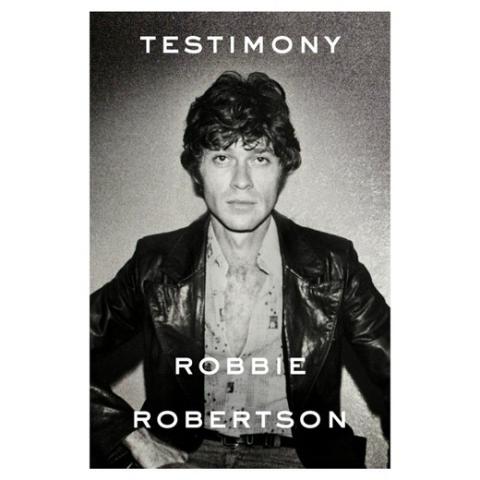
Are there any causes you're supporting now?
I have done some things for the Standing Rock situation and that story is not over. That is a continuing thing and there is also the American Indian College Fund, which is in Canada as well as United States. Buildings schools for indigenous people in North America is a great thing. So I’ve been a supporter of that for many years and I will continue. There are so many things in this world that you want to be helpful in, if you possibly can. So my antenna is up for that but some of these things we talked about today are very close to my heart.
And what have you been doing for Standing Rock?
I’ve been helping to organize things and telling people about it spreading the word, I’ve done some music for it. I have a new piece of music that’s coming out [2013's ‘Pray’] that really is about this feeling of what the scope right now is. I’m doing what I can do with the tools that I have.
Official Images // Nike Kobe 6 "Grinch" - Monticello , Sneaker News, Release Dates and Features